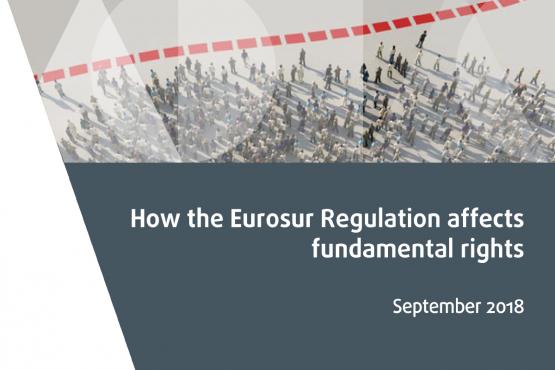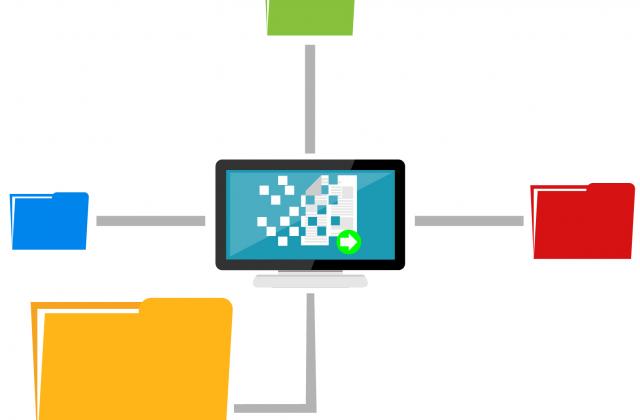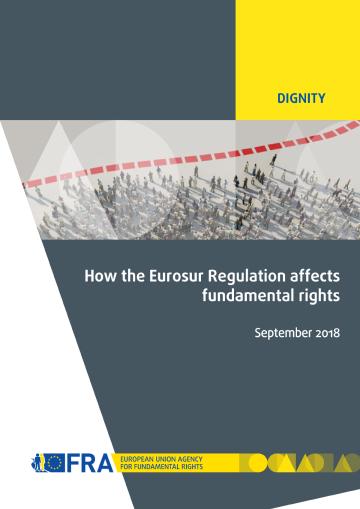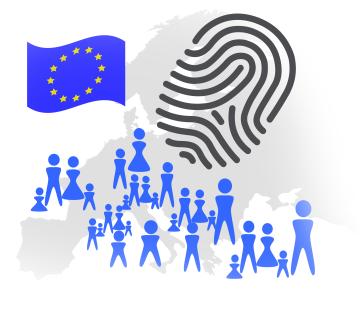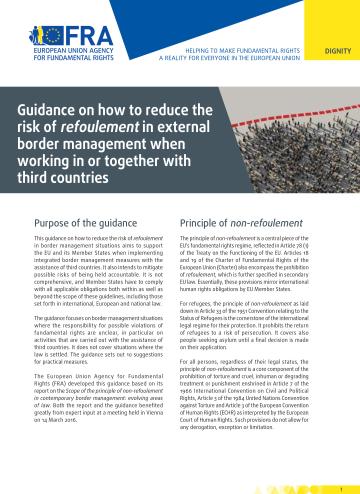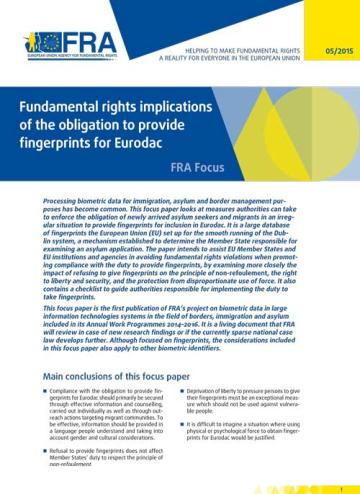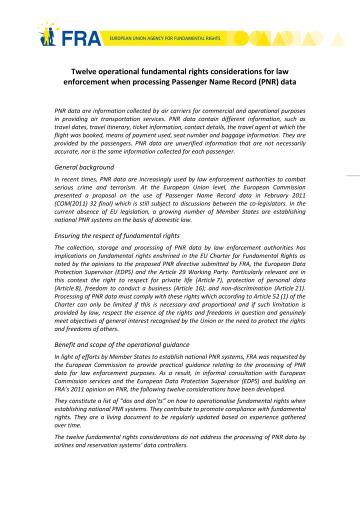Frontières et systèmes d’information
Highlights
- Handbook / Guide / Manual8octobre2025The Entry/Exit System (EES), launching in 2025, will register non-EU nationals crossing the EU’s external borders. This FRA guidance supports managers overseeing the operation of the new system. It helps them to ensure compliance with EU fundamental rights. It outlines operational considerations: clear communication, dignified biometric data collection and data protection. It also addresses staff training needs. Based on fieldwork at 10 border crossing points in 6 Member States, the guidance will ensure rights are respected under the new system. A separate guidance publication for border guards accompanies this publication.
- Report / Paper / Summary12septembre2018In November 2017, the European Commission requested FRA’s support in evaluating the impact on fundamental rights of the European Border Surveillance System (Eurosur) Regulation. Further to this request, FRA reviewed the work of the European Border and Coast Guard Agency (Frontex) and analysed cooperation agreements concluded by EU Member States with third countries which are relevant for the exchange of information for the purposes of Eurosur. This report presents the main findings of such review.
- Opinion / Position Paper19avril2018This Opinion by the European Union Agency for Fundamental Rights (FRA) aims to inform the European Parliament position concerning legislative proposals on interoperability between EU information technology systems (IT systems) presented on 12 December 2017 and currently discussed by the EU legislators.
- Handbook / Guide / Manual5décembre2016Les États membres de l’UE participent de plus en plus à des activités de gestion des frontières en haute mer, sur le territoire de pays tiers, ou en coopération avec ces derniers, ainsi qu’aux frontières de l’UE. Ces activités peuvent comporter des risques de violation du principe de non-refoulement, la pierre angulaire du régime international juridique assurant la protection des réfugiés, qui interdit le retour d’individus vers une situation de risque de persécution. Ces orientations présentent des suggestions spécifiques sur les moyens de réduire les risques de refoulement dans ces situations. Elles constituent un outil pratique élaboré à l’aide de contributions d’experts réunis à Vienne en mars 2016.


